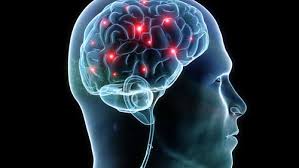 Everyone knows that teens have a larger appetite for quick rewards than either adults or children. But up until now scientists have been uncertain about whether this tendency had any beneficial impact. Some have argued, in fact, that this propensity is maladaptive insofar as adolescents’ engage in risky behavior (e.g. joyrides, drugs, sex) to get those rewards.
Everyone knows that teens have a larger appetite for quick rewards than either adults or children. But up until now scientists have been uncertain about whether this tendency had any beneficial impact. Some have argued, in fact, that this propensity is maladaptive insofar as adolescents’ engage in risky behavior (e.g. joyrides, drugs, sex) to get those rewards.
In a new study published in the journal Neuron, however, scientists appear to have sound empirical evidence to suggest that reward-seeking is a good thing for teens and helps them learn more effectively and remember things that will be important to them in adulthood. Both adolescents and adults were asked to play a game involving pictures while having their brains scanned. The teens actually outperformed the adults and results indicated that they had better recall of the details concerning why they chose the answers they did.
Brain scan results showed that teens engaged both the striatum (important for reward-seeking and also planning and decision-making) and the hippocampus (important for memory), while the adults only engaged the striatum. The scientists suggested that adolescents’ linking of the two areas of the brain while problem-solving help explain why they did better than adults on the task. This brain activity may be the neurological framework within which adolescents form powerful memories of learned behaviors that will optimally help guide their behaviors as adults.
For more information about how the adolescent brain works and how educators can make use of recent neuroscience findings to help teens learn more effectively, see my book The Power of the Adolescent Brain: Strategies for Teaching Middle and High School Students (ASCD).
This page was brought to you by Thomas Armstrong, Ph.D. and www.institute4learning.com.
Follow me on Twitter: @Dr_Armstrong



















